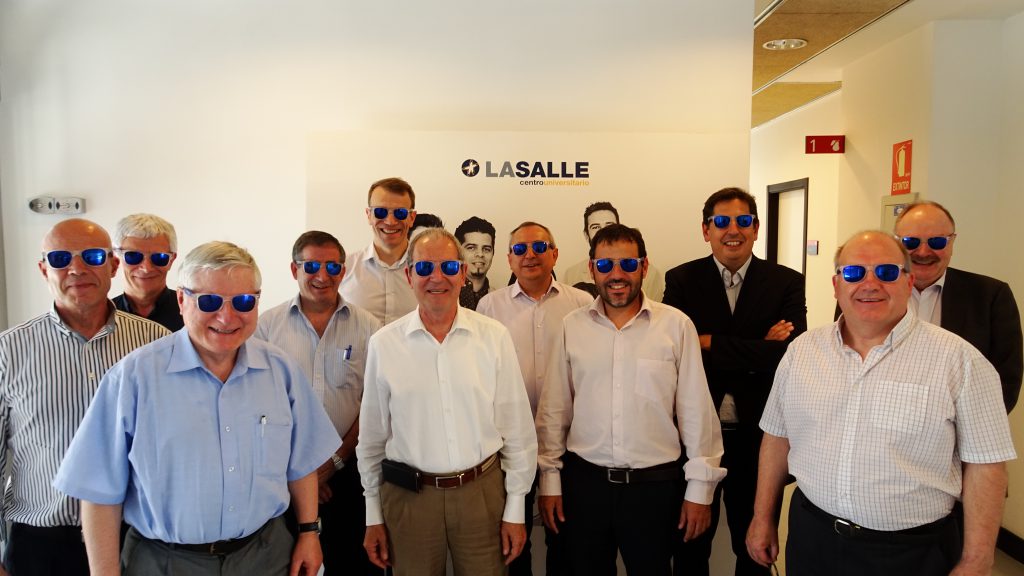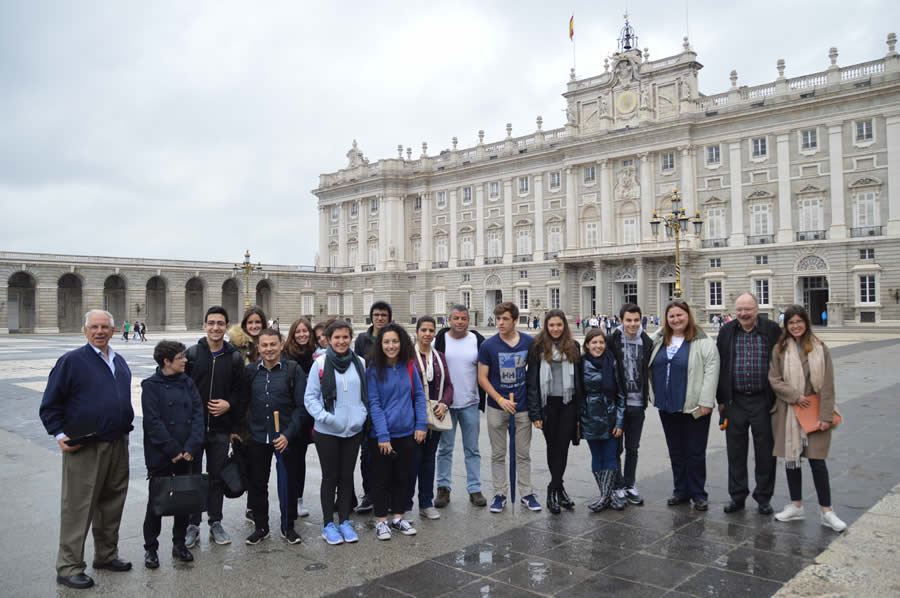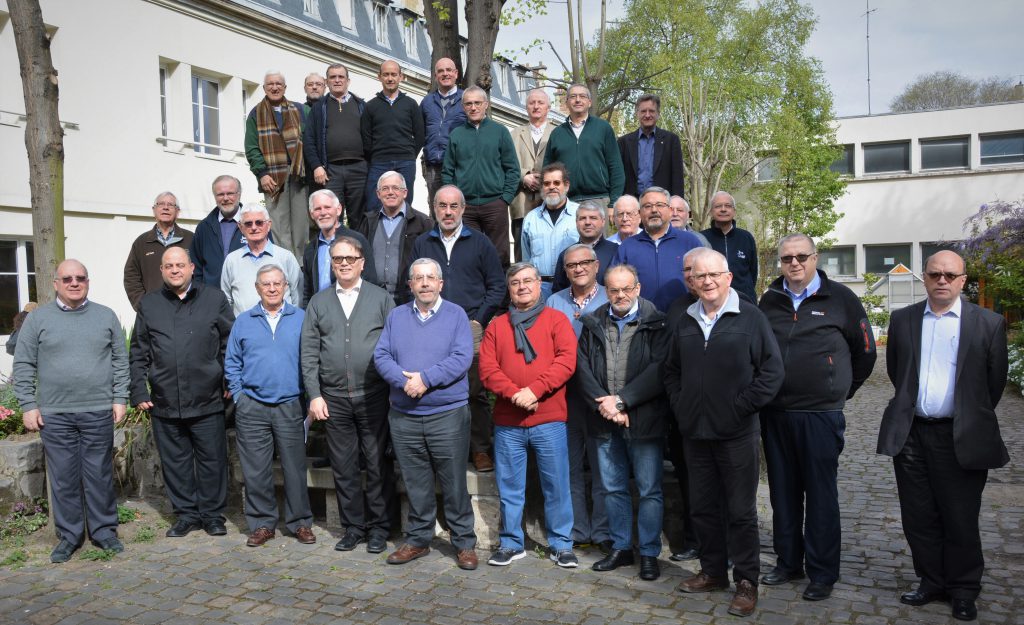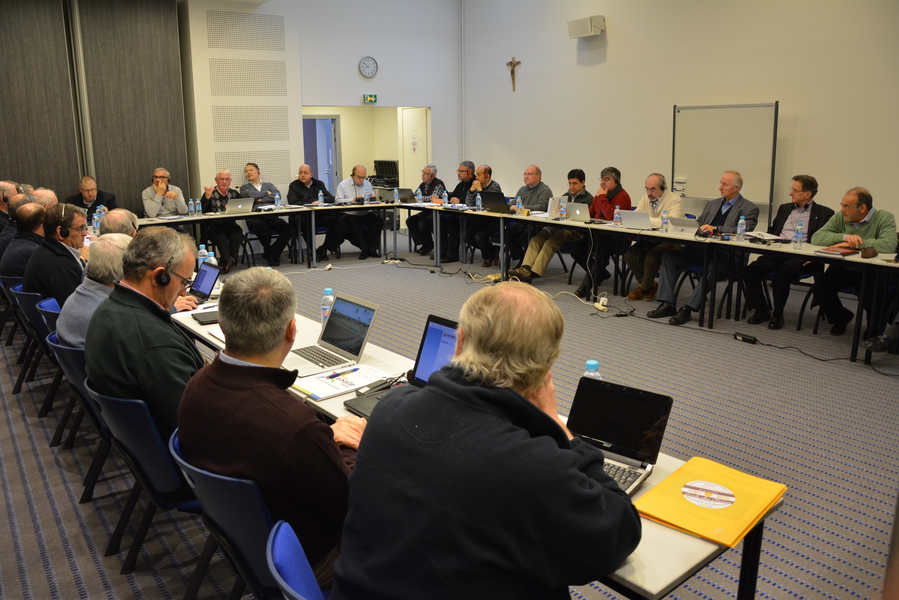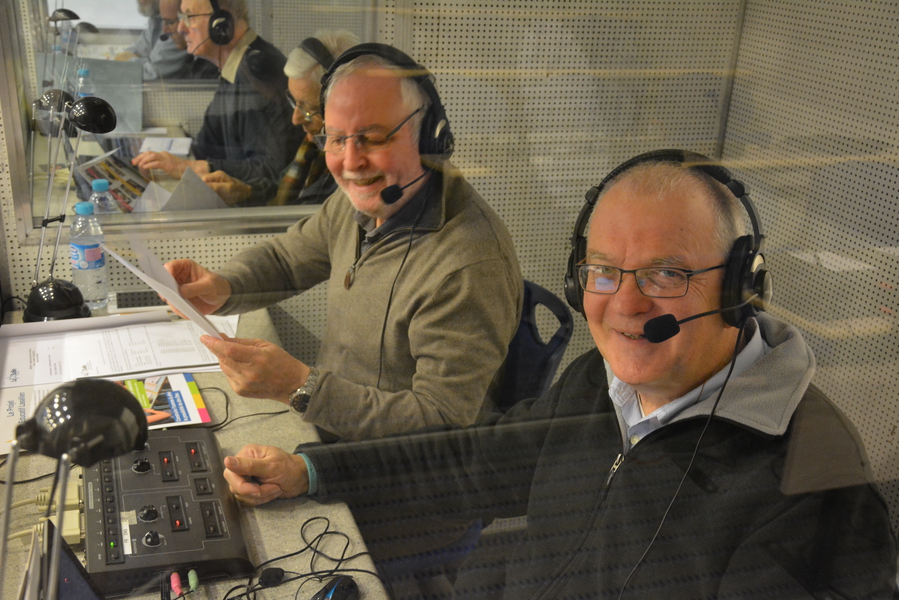Category: RELEM
Entrega de Premios LSDreams en La Salle Campus Madrid
Una emocionante jornada en la que tuvimos el placer de contar con la presencia de:
Rvdo. Hno. Pedro Luis Rodríguez Álvarez, presidente La Salle Campus Madrid.
Rvdo. Hno. Aidan Kilty, consejero General de la región RELEM
Rvdo. Hno. Aquilino Bravo Puebla, visitador sector Madrid
Excmo. Sr. Musa Amer Odeh, embajador de Palestina
Sr. Aytaç Yilmaz, consejero de la Embajada de Turquía
La 6ª edición del concurso LSdreams ya tiene ganadores. El concurso, iniciativa de La Salle Universities, y abierto a estudiantes pre-universitarios de centros lasalianos de Europa y Oriente Medio, de entre 16 y 20 años, ha premiado propuestas de Zaragoza y Las Palmas de España, y en otros países han ganado equipos de colegios de Egipto, Turquía y Palestina. Su objetivo principal es motivar la inclusión de los valores éticos en el desarrollo de proyectos de investigación que mejore su entorno social. Los proyectos ganadores tratan temas amplios como el control vía domótica de ventanas, medidas de seguridad para los aviones, temas más sociales de inserción refugiados, los trastornos alimentarios o el reciclaje y mejora energética.
El objetivo del concurso es fomentar entre los jóvenes la sensibilidad y la capacidad de reflexión en torno a las implicaciones morales y éticas en las cinco áreas de conocimiento propuestas por la organización. Los proyectos presentados deben pretender la mejora de su entorno más cercano, siendo proyectos innovadores de investigación y desarrollo en los ámbitos de arquitectura, ingeniería, salud, gestión empresarial y ciencias de la vida y la Tierra.
En la edición de este año, el concurso ha otorgado cinco primeros premios, un accésit, un premio extraordinario y el premio ASSEDIL (Asociación Europea de Directores Lasalianos) y un accésit, otorgado por esta misma institución.
- Mejor proyecto en la categoría de Ingeniería y Premio Extraordinario LSdreams: grupo “Smart Window” de l’Ecole des Frères de Belén, en Palestina. El equipo está formado por los alumnos Nora Marzouqa y George Khalilieh y con la tutora Ekhlas Bannoura. El proyecto se refiere a la domótica en hogar y concretamente en las ventanas. La tecnología desarrollada se incorpora al funcionamiento normal de la ventana pero además incluye una aplicación para el teléfono móvil que permite su control y además incorpora un detector de gas que en caso de fuga abre de forma automática la ventana evitando la intoxicación de sus ocupantes.
- El jurado ha decidido otorgar un Accésit en el área de Ingeniería al grupo “SavePlanes” del Colegio La Salle Palma de Mallorca, formado por los alumnos Lucas García Bennetty, Oliver Zidouh Jiménez y Omar Ntifi Matarín y por el tutor Pedro Bartolomé Conde Riera. Su proyecto contempla la inserción de cabinas extraíbles con paracaídas en la parte superior de los aviones, para que en caso de accidente de aviones comerciales, las cabinas se extraigan automáticamente y aterricen establemente.
- Mejor proyecto en la categoría de Gestión Empresarial y Acessit ASSEDIL: el grupo “Green Asylum” del St. Joseph Fransiz Lisesi de Estambul (Turquía). El equipo está formado por los alumnos Ece Ari, Sinan Onukar y Ece Ercanli, y por la tutora Maral Basma. El proyecto desarrollado trata de un tema tan actual como los refugiados. Los alumnos han diseñado un modelo de negocio sostenible e integrador para los refugiados en zonas urbanas que les ayuden en su capacidad de recuperación, rehabilitación y sostenibilidad. Se ha diseñado un espacio común verde en estas zonas urbanas, en las que se integren la hidroponía, la permacultura y agricultura urbana. Sería un espacio donde compartir de forma colaborativa y obtener productos que pudiesen vender en el mercado.
- Mejor proyecto en la categoría de Salud: el grupo “Healthcare”, del colegio La Salle Santo Ángel de Zaragoza. El equipo está formado por los alumnos Natalia Melero Valero, Alba Mascarós Ibáñez y Alba María Amorós Ginés, y por la tutora Pilar Pascual García. El tema del proyecto son los trastornos alimentarios y el diseño de una aplicación que ayude a superarlos.
- Mejor proyecto en la categoría de Ciencias de la Vida y la Tierra: el jurado decidió otorgar dos primeros premios que recayeron en el grupo “Pisgriculture” del Collège Saint-Marc de Alejandría (Egipto), formado por los alumnos Ibrahim Ayub, Samuel Abou Elkher y Youssef Elias y por el tutor Ihab Ghobrial. El proyecto consiste en la explotación de los recursos disponibles que de forma habitual se desperdicia como el agua sobrante en la cría de peces en un tanque, o el agua de los aires acondicionados. Contempla que se puede reciclar esta agua, utilizar el espacio disponible más eficientemente, y proporcionar alimentos, especialmente en los países en desarrollo.
- El premio fue compartido con el proyecto Neoteric E- unit, presentado en la modalidad LSdreams Proyecto Colaborativo (colaboración entre dos equipos de diferentes colegios) realizado por un equipo del Collège des Frères de Jerusalem (Palestina), formado por los alumnos Rand Khoury y Wassef Daher y por el tutor Amer Qaisy; y otro equipo de La Salle Palma de Mallorca (España) formado por el alumno Rafel Llobet Tur y por el tutor Pedro Bartolomé Conde Riera. En este caso además del primer premio compartido en la categoría también consiguieron el Premio ASSEDIL. El proyecto añade mejoras a las unidades de energía solar y eólica, así como a las baterías de larga vida, con recursos sostenibles muy simples, que se pueden utilizar para el hogar o en vehículos mecánicos como barcos
- En la categoría de arquitectura el jurado ha declarado desierto el premio.
RELEM Visitors’ Conference – París 2016
The 2016 RELEM Visitors’ Conference took place at the Maison La Salle, in Rue de Sèvres, Paris, from Monday April 25 th to April 29 th . The Conference was hosted by the Brother Jean-Paul Aleth (Visitor) and the District of France and was presided over byBrother Aidan Kilty, the General Councillor with responsibility for RELEM. 23 Visitors, Auxiliary Visitors and Delegates attended the Conference from the 8 Districts and Delegation of the Region of RELEM.
The opening days of the Conference were devoted to a reflection on the future restructuring of the Region in the context of the changing demography of the Districts and the need to ensure the sustainability of the Lasallian mission in the Region into the future. This part of the Conference was facilitated by Brother André-Pierre, former Auxiliary Visitor of France, and after much reflection and discussion the Conference put in place the mechanics for a Regional MEL Council with a key responsibility fo organising the first Regional MEL Assembly. The Conference also decided to change the composition of the Regional Council by reconstituting it as the Council of the Titular Visitors with the aim of collaborating and reflecting on crucial Regional issues with the General Councillor for the Region.
Following the opening days of reflection, the Conference then addressed its normal business such as attending to the financing of the Regional structures, including the Regional Novitiate in Madrid, and receiving the reports of the various groups or councils working on behalf of the Region – such as MEL, Assedil, NGOs, Universities, the Administrative Council of the Novitiate, and the Young Lasallian Council. The French representative on the RELEM Young Lasallian Council, Bérengère Pichelin, presented this latter report. The financial challenges of the international Institute were presented to the Conference through a video link by the Institute Bursar, Brother Ambrose Payne. The Conference also had the opportunity to discuss future plans for the Lasallian centre in Parmenie and through a presentation entitled “Project Adrian Nyel” the Conference explored the Regional response to the 45 th General Chapter’s propositions with regard to the creation of international communities for vocational discernment in areas of social deprivation. One of the final sessions of the Conference explored the responses of the international Institute and the different Districts of RELEM to the on-going migratory and refugee problems affecting many parts of the Region particularly in the Middle East.
Thanks to the hospitality of the District of France, the participants of the Conference enjoyed a recreational afternoon and evening taking in some of the sights of Paris on a cruise along the River Seine followed by a celebratory meal hosted by a Parisian Lasallian family.

